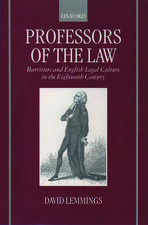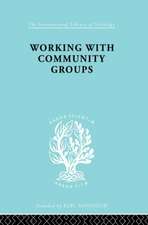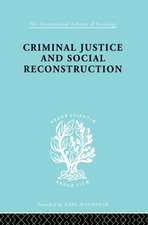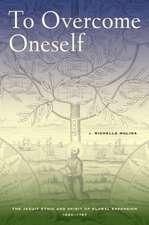Emotions and Social Change: Historical and Sociological Perspectives: Routledge Studies in Social and Political Thought
Editat de David Lemmings, Ann Brooksen Limba Engleză Paperback – 8 dec 2016
| Toate formatele și edițiile | Preț | Express |
|---|---|---|
| Paperback (1) | 486.98 lei 6-8 săpt. | |
| Taylor & Francis – 8 dec 2016 | 486.98 lei 6-8 săpt. | |
| Hardback (1) | 1063.65 lei 6-8 săpt. | |
| Taylor & Francis – 2 apr 2014 | 1063.65 lei 6-8 săpt. |
Din seria Routledge Studies in Social and Political Thought
-
 Preț: 152.43 lei
Preț: 152.43 lei -
 Preț: 296.65 lei
Preț: 296.65 lei - 8%
 Preț: 374.50 lei
Preț: 374.50 lei -
 Preț: 310.96 lei
Preț: 310.96 lei -
 Preț: 310.41 lei
Preț: 310.41 lei -
 Preț: 389.38 lei
Preț: 389.38 lei -
 Preț: 310.29 lei
Preț: 310.29 lei -
 Preț: 333.32 lei
Preț: 333.32 lei -
 Preț: 309.82 lei
Preț: 309.82 lei -
 Preț: 287.68 lei
Preț: 287.68 lei -
 Preț: 347.93 lei
Preț: 347.93 lei -
 Preț: 311.70 lei
Preț: 311.70 lei -
 Preț: 324.20 lei
Preț: 324.20 lei -
 Preț: 319.08 lei
Preț: 319.08 lei -
 Preț: 303.89 lei
Preț: 303.89 lei -
 Preț: 311.41 lei
Preț: 311.41 lei -
 Preț: 229.38 lei
Preț: 229.38 lei -
 Preț: 216.07 lei
Preț: 216.07 lei -
 Preț: 354.07 lei
Preț: 354.07 lei -
 Preț: 318.31 lei
Preț: 318.31 lei -
 Preț: 279.47 lei
Preț: 279.47 lei -
 Preț: 347.26 lei
Preț: 347.26 lei -
 Preț: 402.11 lei
Preț: 402.11 lei - 18%
 Preț: 1110.47 lei
Preț: 1110.47 lei - 18%
 Preț: 1005.73 lei
Preț: 1005.73 lei - 18%
 Preț: 1055.51 lei
Preț: 1055.51 lei - 18%
 Preț: 1058.43 lei
Preț: 1058.43 lei -
 Preț: 409.73 lei
Preț: 409.73 lei - 18%
 Preț: 1061.22 lei
Preț: 1061.22 lei - 18%
 Preț: 1061.84 lei
Preț: 1061.84 lei - 25%
 Preț: 544.67 lei
Preț: 544.67 lei - 18%
 Preț: 1215.71 lei
Preț: 1215.71 lei - 18%
 Preț: 998.71 lei
Preț: 998.71 lei - 18%
 Preț: 1109.99 lei
Preț: 1109.99 lei -
 Preț: 488.71 lei
Preț: 488.71 lei - 30%
 Preț: 847.73 lei
Preț: 847.73 lei -
 Preț: 416.12 lei
Preț: 416.12 lei - 18%
 Preț: 1054.75 lei
Preț: 1054.75 lei - 28%
 Preț: 769.72 lei
Preț: 769.72 lei - 18%
 Preț: 1059.84 lei
Preț: 1059.84 lei -
 Preț: 489.99 lei
Preț: 489.99 lei - 18%
 Preț: 1062.31 lei
Preț: 1062.31 lei - 18%
 Preț: 1108.42 lei
Preț: 1108.42 lei -
 Preț: 382.65 lei
Preț: 382.65 lei - 42%
 Preț: 181.06 lei
Preț: 181.06 lei
Preț: 486.98 lei
Nou
Puncte Express: 730
Preț estimativ în valută:
93.21€ • 101.28$ • 78.35£
93.21€ • 101.28$ • 78.35£
Carte tipărită la comandă
Livrare economică 21 aprilie-05 mai
Preluare comenzi: 021 569.72.76
Specificații
ISBN-13: 9781138291379
ISBN-10: 1138291374
Pagini: 296
Ilustrații: 6
Dimensiuni: 152 x 229 x 24 mm
Greutate: 0.4 kg
Ediția:1
Editura: Taylor & Francis
Colecția Routledge
Seria Routledge Studies in Social and Political Thought
Locul publicării:Oxford, United Kingdom
ISBN-10: 1138291374
Pagini: 296
Ilustrații: 6
Dimensiuni: 152 x 229 x 24 mm
Greutate: 0.4 kg
Ediția:1
Editura: Taylor & Francis
Colecția Routledge
Seria Routledge Studies in Social and Political Thought
Locul publicării:Oxford, United Kingdom
Public țintă
Postgraduate and UndergraduateCuprins
Introduction 1. The Emotional Turn in the Humanities and Social Sciences David Lemmings and Ann Brooks 2. Norbert Elias and Emotions in History Robert van Krieken 3. "The Affective Turn" in the Social Sciences and the Gendered Nature of Emotions: Theorizing Emotions in the Social Sciences from 1800 to the Present Ann Brooks Part 1: Identifying Emotional Communities 4. Searching for Emotional Communities in Late Medieval England Melissa Raine 5. The Emotional Economies of Protestant Missions to Aboriginal People in Nineteenth-Century Australia Claire McLisky 6. Mediated Public Emotion: Collective Grief and Australian Natural Disasters Michelle Duffy and Susan Yell Part 2: Emotions and Enlightened Empires: Histories of Contested Emotions 7. Adam Ferguson’s Sociology of Emotion Lisa Hill 8. The Discontents of the Civilizing Process: "Beauty & Booty" and the Problem of Colonial Affect in the American War of 1812 Nicole Eustace 9. Politics and Changing Views of Jealousy in the Antebellum US Michael E. Woods Part 3: Emotions and the Happy Life: The Modern Politics of Emotions 10. Norbert Elias and the Sociology of Resentment Bryan S. Turner 11. Abortion, Selflessness and "Happy Objects" Erica Millar 12. Civilizing Marriage: Norbert Elias, Same-Sex Marriage and the State Carol Johnson Part 4: Trajectories of Civilization and De-Civilization?: Elias, Violence and Regression in Modern Societies 13. Comparative Reflections on The Civilizing Process Peter Mayer 14. Marie Corelli, Shame and the "New Woman" in Fin-de-Siècle Britain Sharon Crozier-De Rosa
Descriere
This volume - organized around critical perspectives on Norbert Elias's history of emotions - focuses on the history of emotional styles and socio-historical change, providing an analysis of the intersection of historical and sociological perspectives on changes in emotional regimes. Exploring such issues as the formation of emotional communities, the histories of contested emotions, the modern politics of emotions, and violence and emotions, the authors seek to answer the questions: What are the drivers of change in Western societies’ emotional regimes? What is the role of collective emotions in socio-historical change?




















